International travel involves crossing the boundaries of one’s own country to visit another. It is not just a means for recreation; it also serves educational, humanitarian, and business purposes. Through international travel, individuals experience different cultures, climates, and landscapes, broadening their perspectives and understanding of the world. Preparing for international travel requires careful planning and awareness of various factors such as visa requirements, travel advisories, and health precautions.
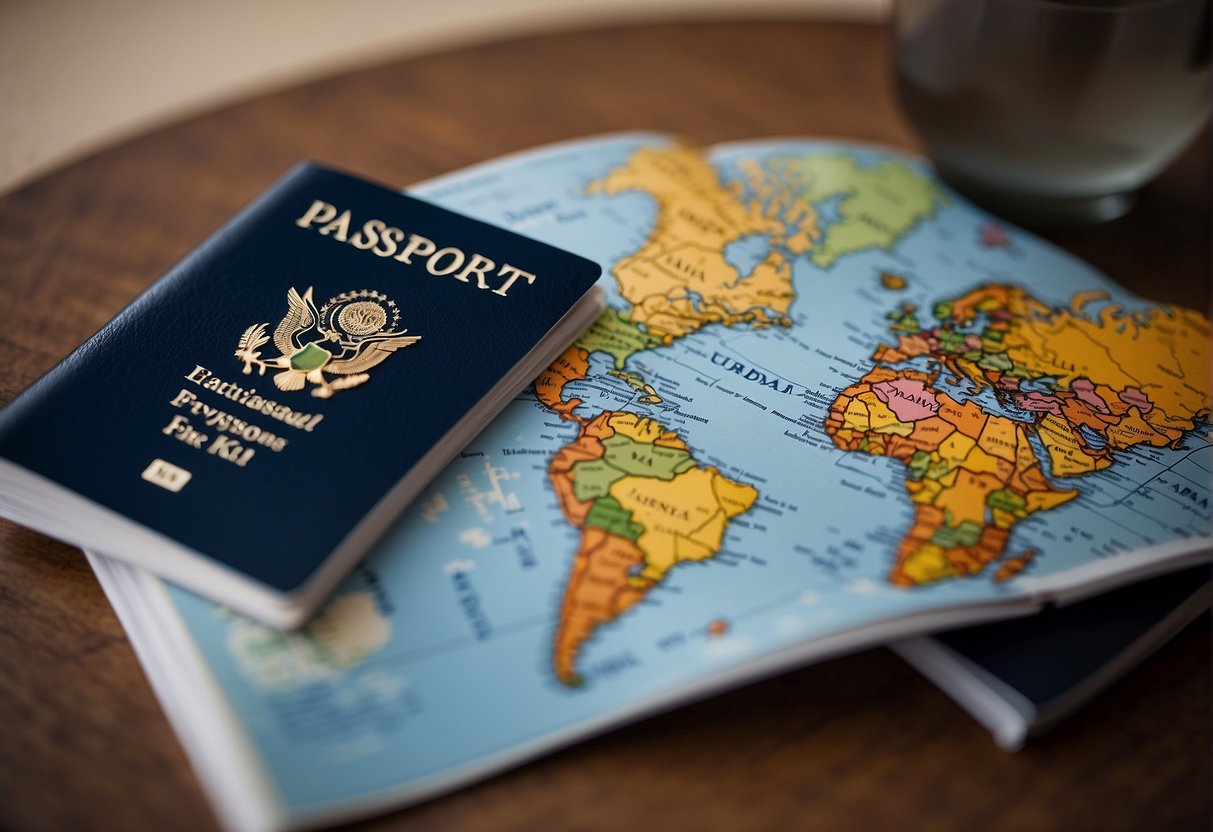
Individuals partaking in international travel must navigate entry and exit regulations, which can vary greatly from country to country. This process may include obtaining appropriate visas, fulfilling vaccination requirements, and understanding customs regulations. It’s also essential for travelers to exercise due caution when it comes to their health and safety by acknowledging potential medical emergencies and regional risks. Aligning with contemporary norms and legalities, travelers should strive to respect the cultural etiquette of their destination country, maintaining awareness and sensitivity towards local practices and laws.
Key Takeaways
- International travel expands worldviews through cultural and geographical immersion.
- Meticulous preparation is essential for smooth entry, stay, and exit from countries.
- Awareness of health, safety, legal, and cultural aspects is crucial for responsible travel.
Understanding International Travel
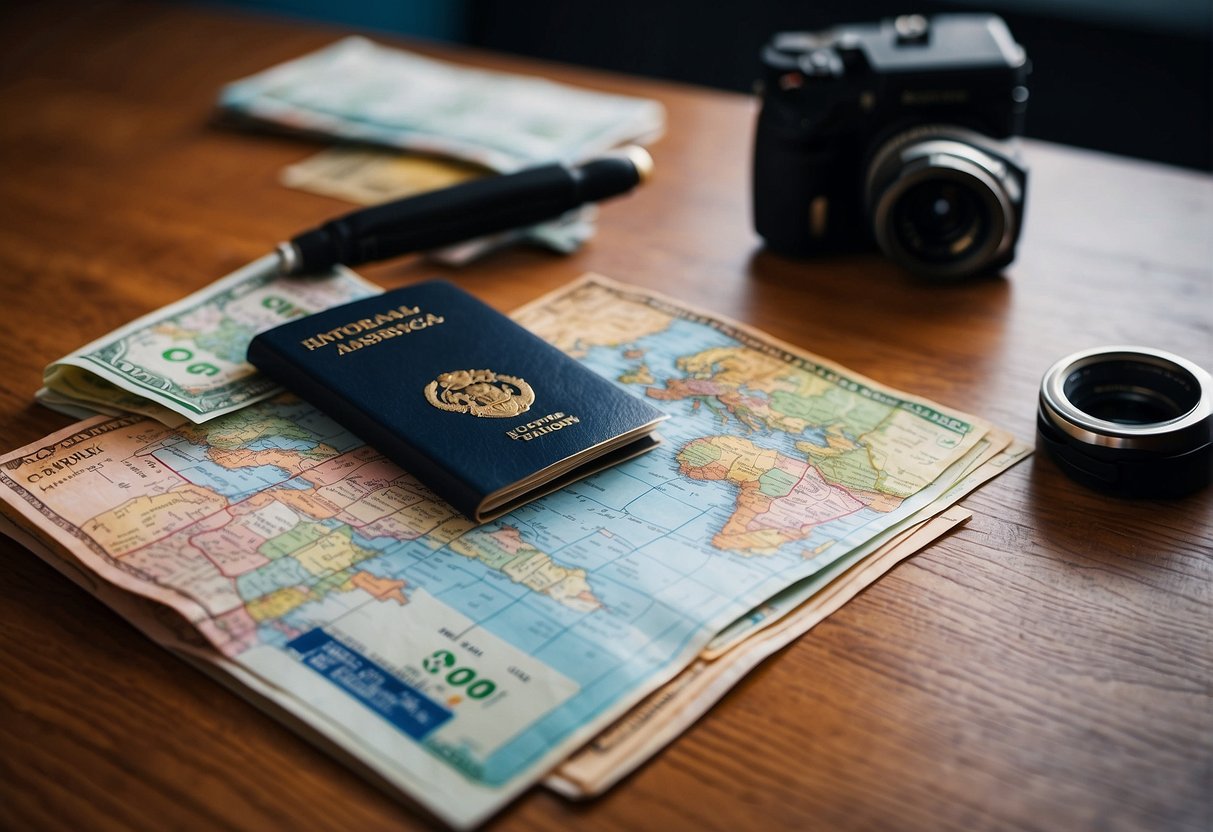
International travel involves crossing national borders to visit destinations outside one’s home country. It requires careful planning, typically starting with obtaining a valid passport, often with a requirement of six months’ validity post date of travel.
When selecting a country or countries to visit, travelers must consider visa requirements, which vary from destination to destination. Researching local customs, language, and laws is crucial, as these differ significantly across borders. One can start their journey prepared by looking for tips for flying internationally, which often include advice on managing layovers, jet lag, and in-flight comfort.
| Essential International Travel Considerations |
|---|
| Passport validity |
| Visa requirements |
| Local customs and etiquette |
| Transportation plans |
| Lodging arrangements |
Considering health precautions is non-negotiable. Visitors may need specific vaccinations or health insurance coverage. Moreover, understanding the currency exchange rate and having a budget plan are key to a successful trip.
An essential part of international travel is embracing the richness of experiencing different cultures. It means diving into local culinary delicacies, participating in traditional festivities, and understanding the historical background of the places visited.
Finally, organizing and confirming transportation, from flights to local transit, ensures a smooth movement throughout the journey. For nuanced guidance on these stages, travelers can refer to international travel planning resources. These details, altogether, craft the path for an enriching and memorable international experience.
Preparations for International Travel
Efficient preparation is crucial for a smooth international travel experience, focusing on essential documentation, health safety, financial management, and strategic packing.
Travel Documentation and Requirements
International travel hinges on proper travel documentation. A valid passport is mandatory, and many countries require that it has at least six months of validity remaining upon entry. Travelers should check if their destination requires a visa; this includes both tourist and transit visas. For updated travel requirements, consult government websites to understand entry protocols based on your citizenship.
- Passport: Check expiration date and visa pages.
- Visas: Determine if necessary and apply ahead of time.
Health Safety and Vaccinations
Vaccinations are a cornerstone of international travel health safety. Some destinations mandate specific vaccine requirements, such as yellow fever or typhoid vaccinations. Additionally, travelers should carry proof of vaccination and be aware of potential health risks in the area.
- Vaccines: Obtain required immunizations well in advance.
- Health Safety: Pack a basic first aid kit and prescription medications.
Financial Planning and Budgeting
A robust financial plan is key when traveling abroad. Inform your bank of travel plans to avoid any credit card issues and consider budgeting for daily expenses, unexpected costs, and travel insurance. Keep a mix of cash and cards for convenience.
- Budget: Outline daily expenses and emergency funds.
- Credit Cards: Inform banks of travel, and ensure cards are accepted abroad.
Packing and Itinerary Planning
Packing effectively means choosing the right luggage and knowing what must come along. Items such as a good luggage for international travel, a best carry-on backpack, and a comprehensive packing list are indispensable. A detailed itinerary provides structure to your trip, and ensuring you have everything packed by consulting a travel checklist is pivotal for peace of mind.
- Itinerary: Line up activities, accommodations, and transportation.
- Pack List: Use a checklist to remember essentials and avoid overpacking.
Travel Restrictions and Safety Advisories
Traveling internationally can involve navigating a complex web of entry requirements and safety advisories. Staying informed about the current regulations and risk levels can help ensure a smoother journey.
Country-Specific Restrictions
Countries may impose entry restrictions related to COVID-19, which can include presenting proof of vaccination, showing recent negative tests, or undergoing quarantine upon arrival. The U.S. Department of State offers updates on international travel alerts that inform travelers about the latest country-specific requirements.
Health and Safety Advisories
Health concerns, especially due to COVID-19, have led to enhanced screening procedures at borders. The CDC provides guidance on measures like wearing masks and social distancing. It’s crucial to check for the latest health and safety advisories before departure to be prepared for the specific health protocols in place.
Political and Social Climate
Assessing the political and social stability of a destination is vital. The State Department’s travel advisories evaluate these factors and offer recommendations on whether to reconsider or avoid travel to certain areas. Staying updated with the latest guidelines for international travel to India or any other country can keep travelers apprised of any unrest or security risks they may encounter.
Navigating Entry and Exit Requirements
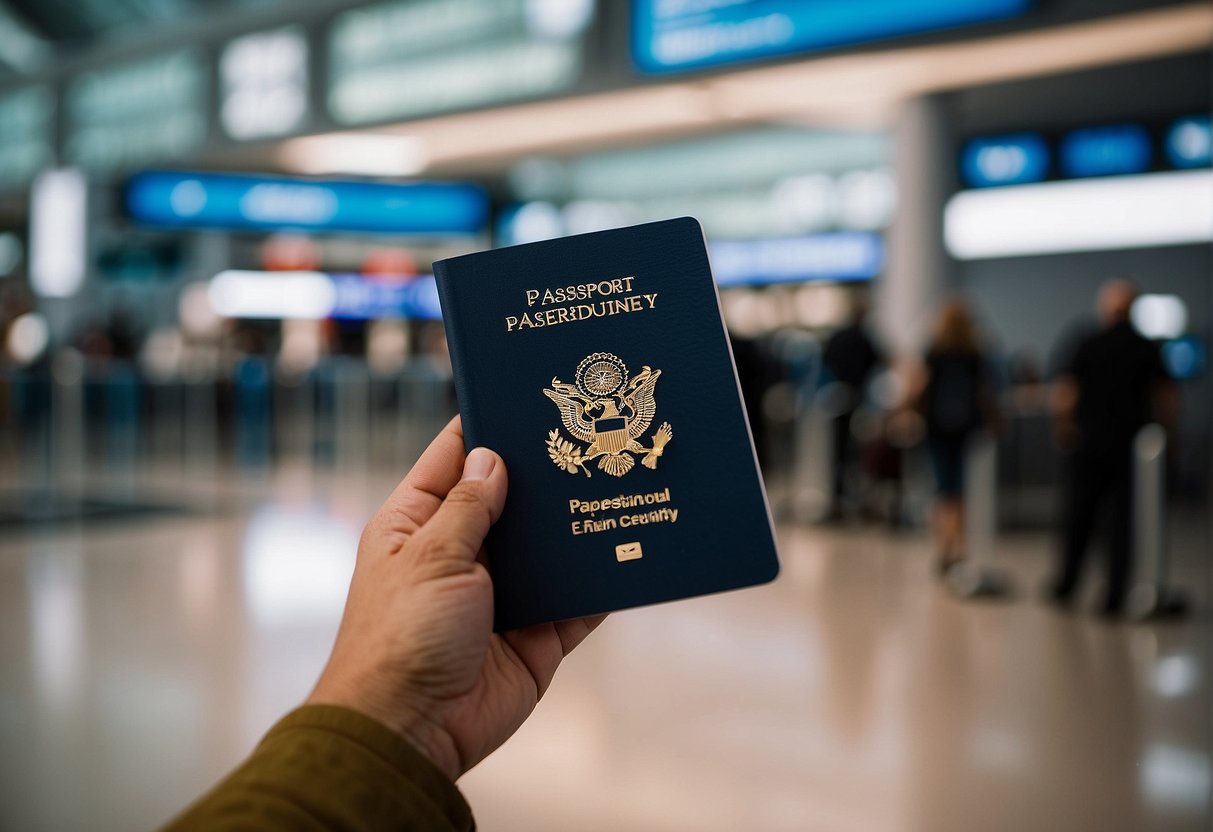
Before embarking on international travel, understanding the entry and exit regulations of your destination and home country ensures a smoother journey. These include visa policies, customs processes, and requirements upon reentry to your home country.
Visa Policies by Country
U.S. citizens must check the visa requirements for their destination as these vary by country. Some nations offer a visa on arrival, while others require a pre-arranged visa through their consulate. For stays beyond tourism or that exceed certain durations, different categories of visas may apply, such as work or student visas. For instance, travellers with pets should familiarize themselves with the requirements for international travel with dogs, especially when visas are involved.
Customs and Immigration Processes
Upon arrival by air, land, or sea, travelers must navigate through customs and immigration. Declarations of goods, currency, and compliance with local laws are standard. Travelers may be asked about their purpose of visit and the duration of their stay. It’s advisable to carry consent forms for minors when traveling without both parents, and the relevant document details can be found under international travel consent forms for minors.
Reentry into Home Country
For reentry into the U.S., citizens must present a valid U.S. passport. Non-citizens typically need the relevant visas and may also provide evidence of their intention to return to their country, such as a round-trip ticket. Specific entry requirements are in place for unaccompanied minors or those traveling with restrictions, and pertinent information about this subject can be accessed via information on international flights for unaccompanied minors.
Accommodations and Transportation
Choosing the right accommodations and navigating local transportation options are vital aspects of international travel, ensuring a comfortable stay and efficient movement from one location to another.
Choosing Accommodations
When selecting accommodations for international travel, consider proximity to major attractions, access to transportation, and the type of experience desired. Hotels range from budget to luxury, offering various amenities. For a more personalized experience, bed and breakfasts or vacation rentals may be suitable. It’s essential to book accommodations in advance, especially if traveling during peak season or to a popular destination. If you’re looking for a flight that could potentially offer bundled deals with hotels, consider exploring options for international flights with Qantas.
Understanding Local Transportation Options
International destinations commonly provide diverse transportation methods, including air travel, land, and sea. Researching local transportation options prior to arrival can save time and reduce stress. Many cities offer public transport systems, such as metro, buses, and trams, suitable for getting around efficiently. For more direct travel, taxis or rideshare apps can be convenient, though it’s important to be aware of local regulations and pricing. For those traveling by air, it’s crucial to know your international flight arrival times, as this can impact your subsequent transportation plans. For last-minute changes in plans or unexpected delays, options for last-minute international flights can be a lifesaver. Always consider safety, timeliness, and cost when choosing your mode of transportation.
Health, Safety, and Emergency Measures
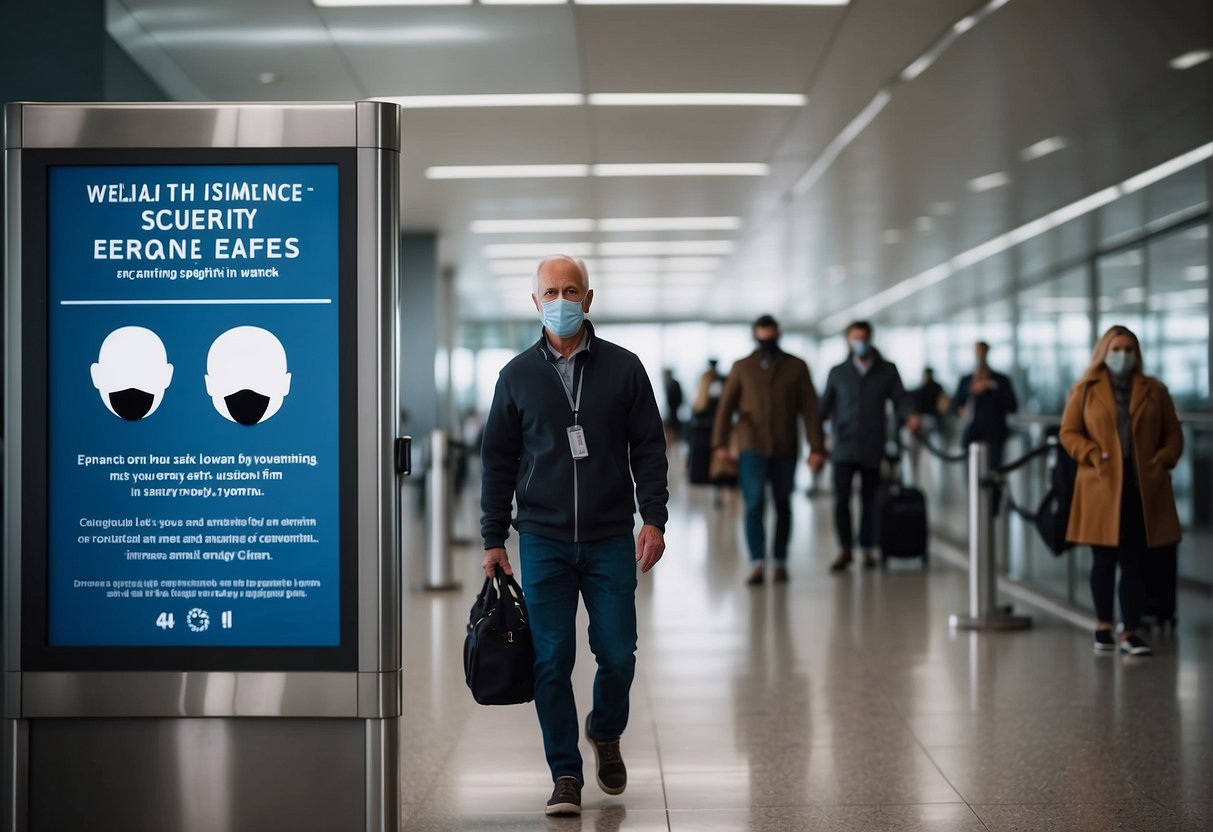
When traveling internationally, taking measures to protect one’s health and safety is crucial. It’s imperative to be prepared for medical issues and emergencies, including understanding the healthcare system abroad and having proper travel insurance.
Medical Precautions
Before departing, travelers should consult the CDC guidelines for vaccinations and health advisories for their destination. Carrying a negative COVID-19 test and a completed health form may be necessary, depending on the country’s entry requirements. Obtaining prescriptions and ensuring one has a sufficient supply of medications is also vital. For managing prescriptions while traveling, one should verify the legalities and any restrictions of their medicine in the destination country by reviewing guidelines for international travel prescription drugs.
Emergency Services Abroad
In the event of a medical emergency, knowing how to contact local emergency services is key. Travelers should research the emergency numbers and the location of hospitals or clinics in the area they will be visiting. The reliability of emergency services can vary significantly from one country to another, and in some locations, private hospitals offer higher standards of care.
Travel Insurance
Travel insurance is a safeguard that can cover unexpected medical expenses and emergencies. Policies differ, and some may include coverage for COVID-19 related incidents, which is especially important in the current climate. Travelers should compare plans to find the best international travel insurance that suits their needs and provides comprehensive coverage while abroad. For more detailed comparisons and options, travelers may explore a comparison of travel insurance.
Cultural Etiquette and Legal Considerations

In navigating the complexities of international travel, emphasis is often placed on cultural etiquette and legal obligations. These elements are not just a matter of courtesy but also of necessity for ensuring a safe and respectful journey abroad.
Understanding Cultural Norms
Cultural norms dictate appropriate behavior within various societies around the world. For international travelers, awareness and adherence to these norms are crucial. For instance, gestures that are considered friendly in one country may be offensive in another. Dining etiquette also varies widely; in some cultures, it is respectful to leave a little food on one’s plate, while in others, it signifies dissatisfaction with the meal. Foreign tourists must keep updated on these nuances to avoid inadvertent disrespect. The act of embracing cultural sensitivities can lead to more enriching travel experiences.
Legal Rights and Responsibilities
The legal landscape for international travelers is equally important. It involves understanding visa requirements, observing local laws, and knowing one’s rights under various jurisdictions. Travelers should be aware of the restrictions that apply to them, which can include entry requirements or prohibited items. It is the responsibility of a traveler to familiarize themselves with these laws to avoid legal complications. In case of legal trouble, travelers should know the location and services of their country’s consulates. These entities can offer assistance and guidance on local legal systems and support their nationals in distress.
For foreign tourists, complying with local laws is non-negotiable. Failure to do so can lead to detention, fines, or expulsion from the host country. Therefore, a comprehensive understanding of one’s legal rights and responsibilities is not just beneficial but imperative for the safety and legality of travel.
Staying Connected
In an age of global connectivity, ensuring continuous communication channels during international travel is crucial. Travelers need to be equipped with the right technology and have a clear understanding of the communication options available to them.
Communication Methods
Smart Traveler Enrollment Program (STEP): For U.S. citizens traveling abroad, enrolling in STEP is a proactive way to stay informed. This program provides important travel advisories and alerts directly to travelers’ email, an essential tool for both safety and staying connected.
- Contact Tracing: Amid travel, maintaining a record of contacts can be vital for health and safety. Contact tracing methods have become increasingly sophisticated, often leveraging technology to trace interactions and alert individuals in the case of exposure to health risks.
Travel Technologies
Traveling internationally requires the right tech to stay connected. From communication devices to power adaptors, each gadget plays a role in seamless connectivity.
- International SIM cards: A vital element for staying connected is the International SIM card, which provides travelers with the ability to use local data and calling plans, avoiding exorbitant roaming charges.
- Portable Wi-Fi and Phone Plans: Devices like portable Wi-Fi hotspots offer travelers reliable internet access. Meanwhile, certain international phone plans are designed for travelers who need a comprehensive communication solution across different countries.
- Adapters and Chargers: An often overlooked aspect is the need for an international travel adapter, ensuring that travelers can charge their devices no matter the electrical outlet format in different countries.
Travel Programs and Services
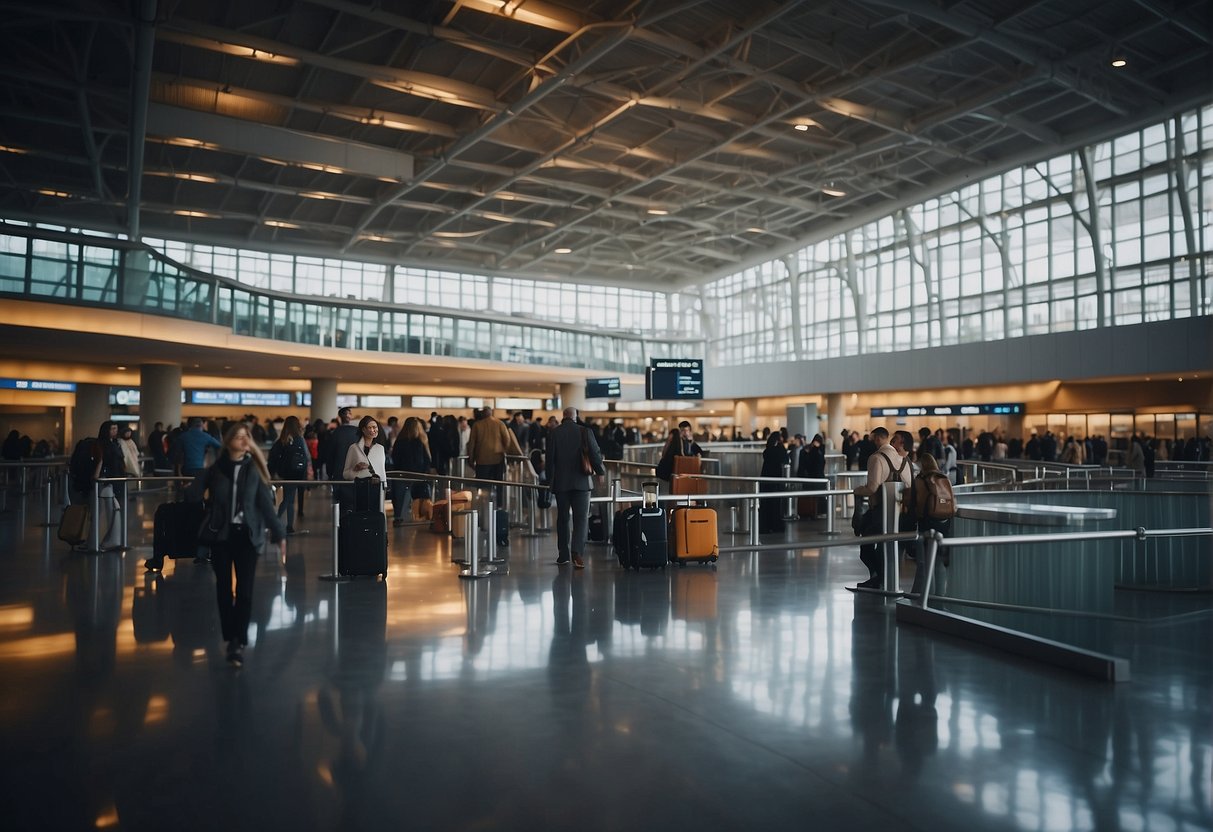
In the arena of international travel, programs and services are designed to streamline and safeguard the journey for travelers. These include Trusted Traveler Programs that offer expedited processing for vetted individuals, as well as Special Support Services addressing the needs of travelers in various situations abroad.
Trusted Traveler Programs
Trusted Traveler Programs offer pre-approved travelers the advantage of expedited clearance through security and customs, leading to a smoother and faster travel experience. Participants in these programs often enjoy the benefits of reduced wait times, and some programs require a membership fee. Many travelers find these services cost-effective when considering time saved, especially for frequent international travel.
| Trusted Traveler Program | Fee | Benefit |
|---|---|---|
| Global Entry | $100 | Faster airport processing |
| TSA PreCheck | $85 | Expedited security screening |
Special Support Services
Special Support Services are critical for travelers who encounter emergencies or require specific assistance during their travels. These services, provided by entities such as embassies and consulates, extend vital help in critical situations like medical emergencies, legal issues, or natural disasters. Enrolling in the Smart Traveler Enrollment Program (STEP) ensures that travelers receive timely security updates and can be quickly supported in case of an emergency abroad.
Exploration and Activities
International travel extends beyond just reaching a destination; it involves engaging with the local environment through exploration and participating in various activities. These experiences can range from sightseeing to immersing oneself in local experiences, providing travelers both enjoyment and learning opportunities.
Sightseeing
Sightseeing is a staple of international travel, often focused on visiting notable landmarks and historical sites that define a destination. Tourists may plan their visits around iconic structures, natural wonders, or important cultural institutions. For example, a traveler in Paris would not want to miss the Eiffel Tower, while someone in Egypt might prioritize the Pyramids of Giza.
- Educational Value: Travelers can learn about history, architecture, and art.
- Work-related Opportunities: Professionals like photographers and journalists often include sightseeing in their work to capture the essence of a place.
Travelers looking for affordable international trips may focus on sightseeing that doesn’t require expensive entry fees, such as public monuments or natural parks.
Local Experiences
Immersing in local experiences allows travelers to understand a destination’s culture more intimately. This can involve a variety of activities, from sampling traditional cuisine to participating in local festivals or workshops.
- Cultural Immersion: Engaging with local communities to understand their traditions and lifestyles.
- Language Learning: Travelers may choose to study or learn a new language by practicing with natives.
For those traveling solo, partaking in international travel for singles might include joining local classes or meetup events to mingle with others and share unique experiences.
Each experience helps paint a complete picture of international travel, making it not just a journey to a new place but a rich tapestry of learning and personal development. Whether for study, work, or leisure, traveling internationally offers a path to global understanding and skills acquisition.
Long-Term and Specialized Travel
Long-term and specialized travel can involve various modes of living and learning in foreign countries. This type of travel offers individuals the opportunity to immerse themselves in new cultures, enhance their skill sets, and sometimes even alter their lifestyles.
Working Abroad
Working abroad allows individuals to gain international work experience and develop a global network of professional contacts. International jobs may vary from formal employment to freelance opportunities, often requiring a work visa or special permits. This type of travel can create transformative personal and professional growth, offering a deeper understanding of global marketplaces and cultural practices. Programs that facilitate these opportunities provide a structure for people looking to engage in international travel required jobs.
Study and Exchange Programs
Study and exchange programs enable students to learn and study in an international context, often through universities or educational institutions. These programs are designed to broaden academic horizons by exposing students to new teaching styles, research opportunities, and diverse cultural perspectives. Such international experiences can be pivotal for students, often enhancing future career prospects.
Retirement and Long-Term Stays
For those seeking a serene lifestyle shift, retirement or long-term stays in a foreign country can be appealing options. This mode of traveling abroad offers a slower pace of life, often in a more cost-effective location. Foreign visitors during retirement can enjoy the cultural richness of new communities while also potentially benefiting from lower living costs and healthcare expenses. International visitors who decide to spend their retirement years overseas can find this to be a fulfilling chapter in their lives.
Challenges and Considerations in International Travel
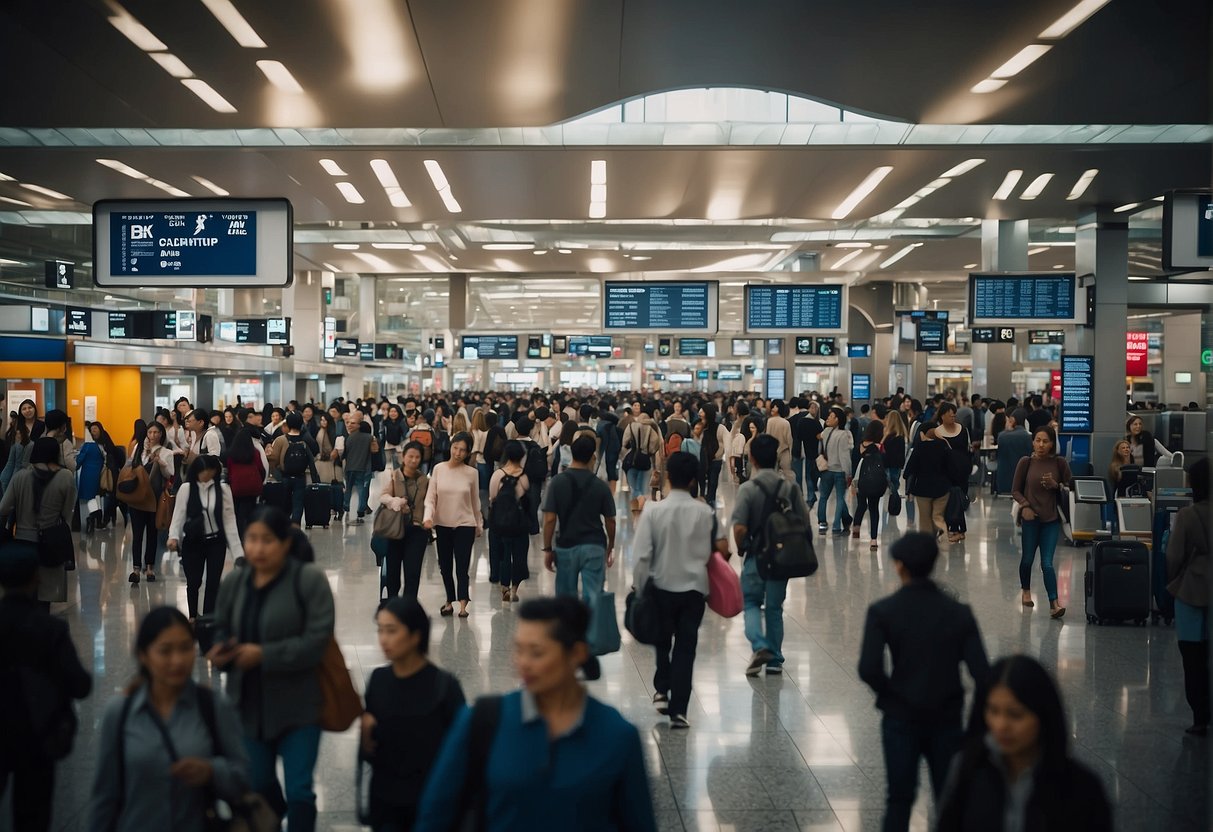
International travel encompasses varied obstacles and key considerations that travelers must navigate. These include travel restrictions, changing guidelines, and health concerns, particularly related to COVID-19.
Travel Restrictions: Countries may impose entry bans or special requirements on travelers due to various factors such as political circumstances or health threats. Restrictions can include visa requirements, proof of vaccination, or quarantine mandates upon arrival. These hurdles require travelers to stay informed about the latest entry requirements of their destination country.
Changing Guidelines: With the ever-evolving nature of international diplomacy and health emergencies, travel advisories and guidelines are in constant flux. Policies can change with little notice, and it’s vital that travelers monitor updates from reliable sources like the World Health Organization to ensure compliance and safe travel.
COVID-19 Considerations:
- Vaccination Status: Some countries mandate travelers to be fully vaccinated.
- Testing: Pre-departure and/or on-arrival COVID-19 tests may be required.
- Masks: Many airports and airlines still enforce mask-wearing policies.
- Quarantine: Depending on the destination, travelers may face mandatory quarantine.
Travelers should prepare themselves for the possibility of sudden changes to their travel plans and the financial implications thereof. It’s also wise to factor in increased transportation costs shown by sources like TripSavvy.
Travel insurance and flexible booking options have gained importance. They allow travelers to adapt to changes or cancelations risk-free. Though challenges exist, thorough preparation can lead to a safer, more enjoyable international travel experience.
Conclusion and Future of International Travel
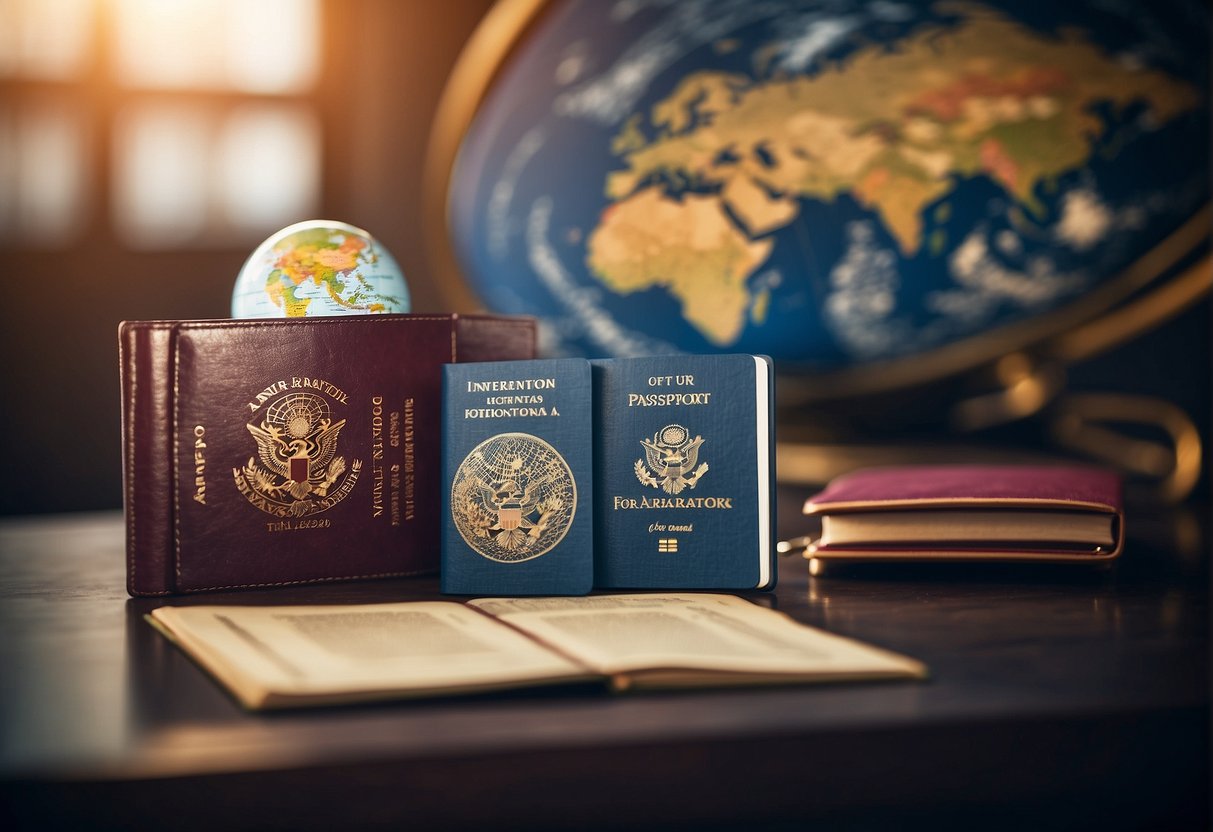
The landscape of international travel is continually evolving. Advancements in technology and growing environmental concerns are shaping a new era of cross-border journeys. Expectations are set that, in the coming years, international travel will become more:
- Sustainable: with initiatives aiming for carbon-neutral flights and eco-friendly hotels.
- Inclusive: by addressing a broader demographic of global travelers and ensuring accessibility.
- Resilient: as seen by the industry’s response to the COVID-19 pandemic and its push towards recovery.
The industry leaders anticipate a future where travel is not just about destinations but also about experiences. They propose a more holistic approach to tourism that benefits both travelers and local communities sustainably.
Furthermore, technology is set to redefine travel efficiency and security. Travelers may encounter innovations such as:
- Biometric identification for smoother transit
- Contactless services to streamline processes
- Advanced health safety protocols ensuring well-being
As international travel transforms, it must also balance the joys of exploration with the responsibility of preserving our world for future generations. The trajectory of travel suggests a commitment to these values, promising a robust, dynamic future for wanderlust enthusiasts.
Frequently Asked Questions
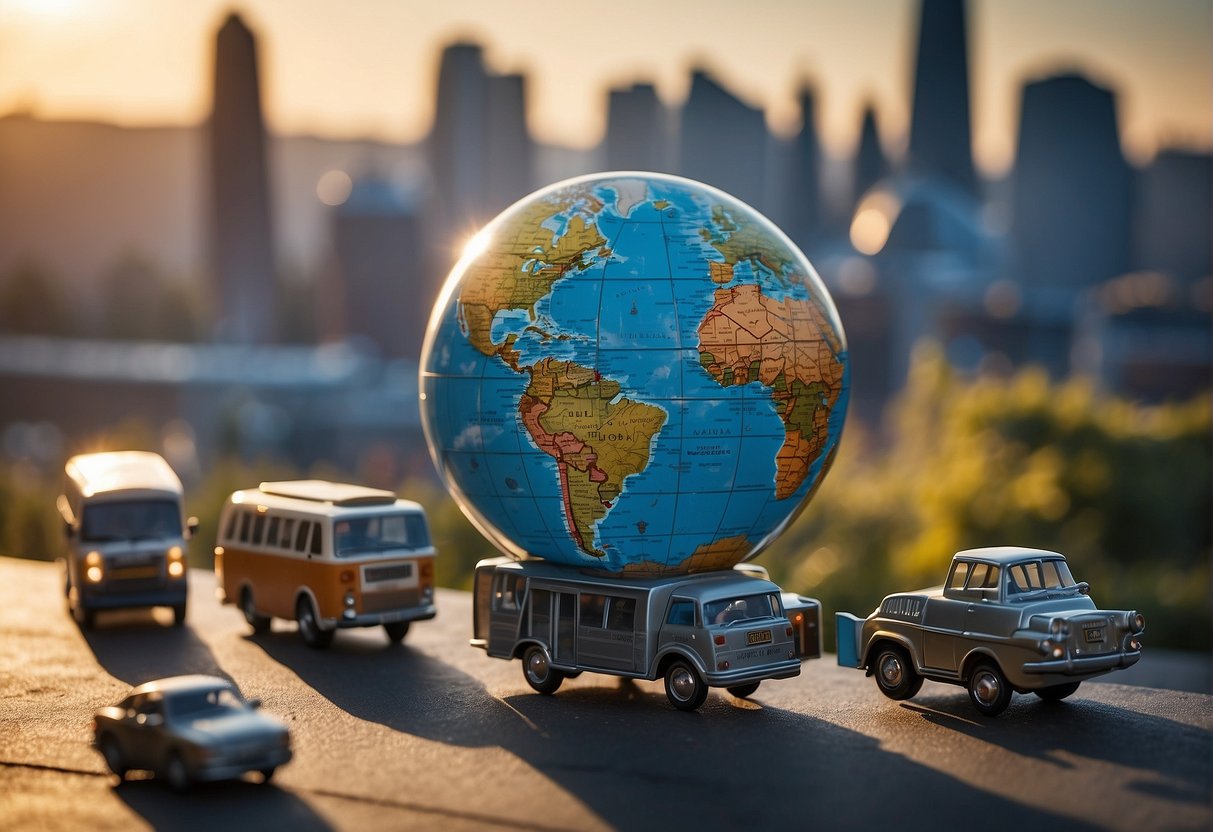
Navigating the complexities of international travel requires up-to-date knowledge on travel restrictions, necessary documents, and preparation steps. This section addresses some of the most pressing queries travelers have today.
What are the current international travel restrictions?
International travel restrictions are continually changing due to health, security, and other global concerns. Travelers can find the most current information on restrictions by visiting official government websites or consulting the Travel FAQs page of their home country’s travel or health department.
Which documents are required for international travel?
To travel internationally, one generally needs a passport, and depending on the destination, a visa may also be required. For detailed information on documents, travelers can refer to resources like the Complete International Travel Checklist for 2024.
How can I find out if a country is on the ‘do not travel’ list?
The ‘do not travel’ list and other travel advisories are officially issued by governments. For Americans, the U.S. State Department’s website provides an up-to-date list and detailed travel advisories, which travelers should review before planning their trip.
What updates have been made to the U.S. travel ban today?
For the latest updates on the U.S. travel ban, one should refer directly to announcements from official government channels or news outlets that provide daily coverage. These sources will convey any new regulations or lifting of restrictions affecting international travel to and from the United States.
How does the State Department categorize countries in their travel advisories?
The State Department uses a four-level system to categorize countries in their travel advisories, ranging from Level 1: Exercise Normal Precautions to Level 4: Do Not Travel. The criteria for each level include factors like health risks, crime rates, and the possibility of terrorism or unrest.
What steps should I take to prepare for flying internationally?
Preparation for flying internationally involves checking your passport’s validity, obtaining necessary visas, and ensuring you comply with health and security regulations of the country you are visiting. Utilize checklists from resources such as Our Ultimate Pre-Travel Checklist to ensure all bases are covered.
Leave a Reply